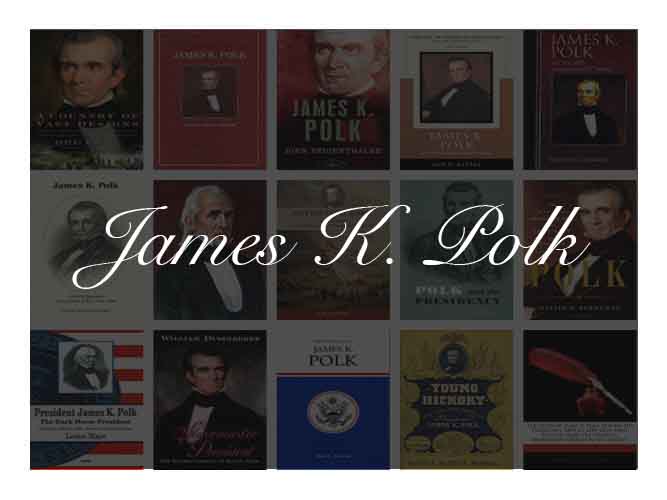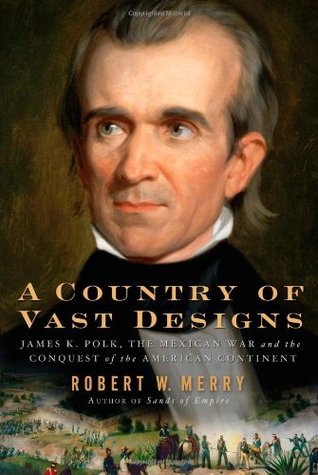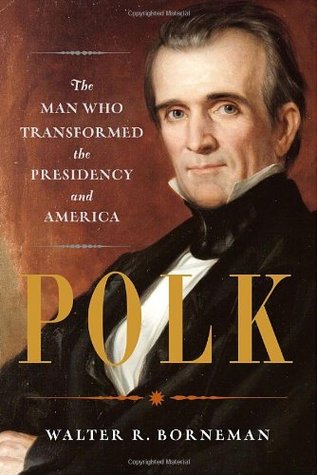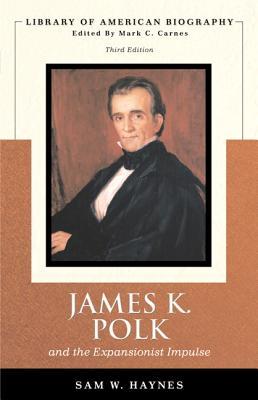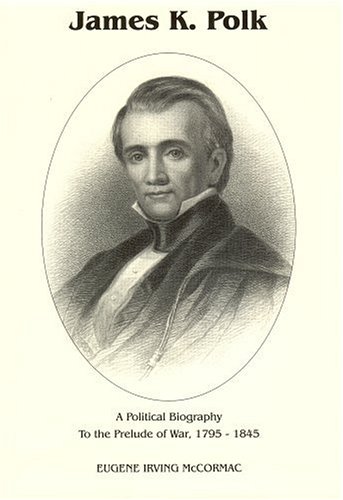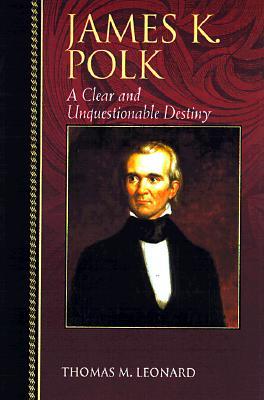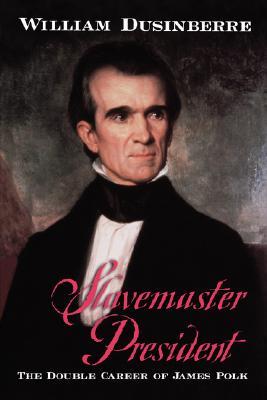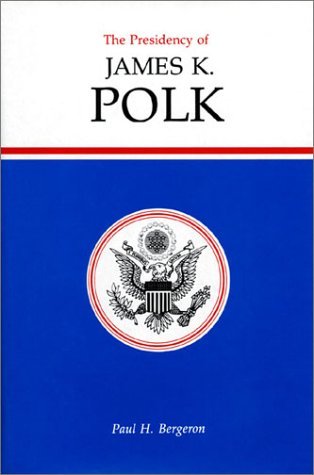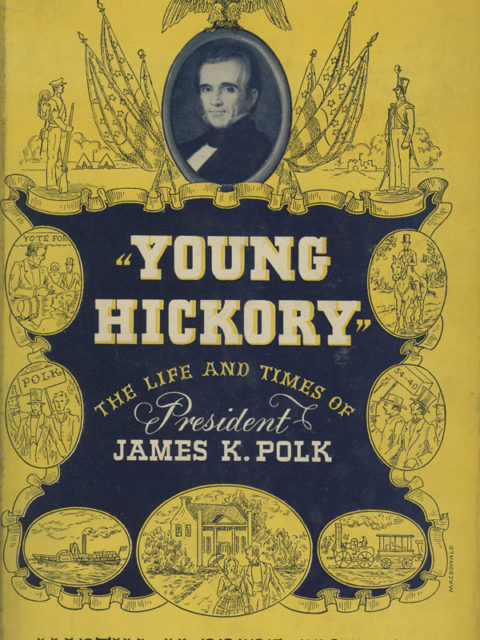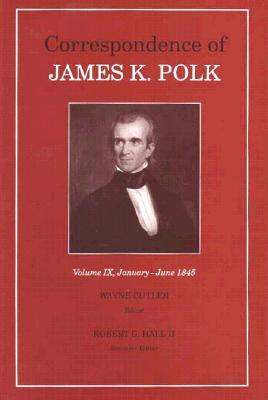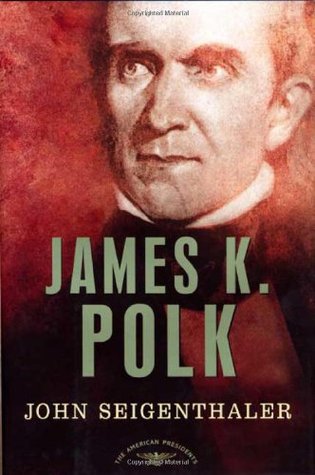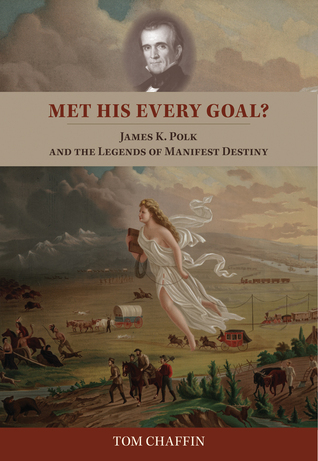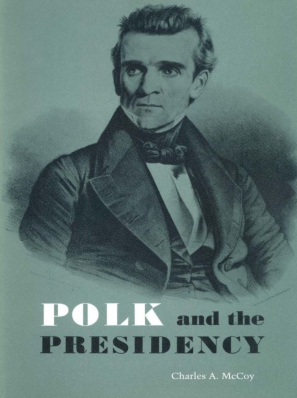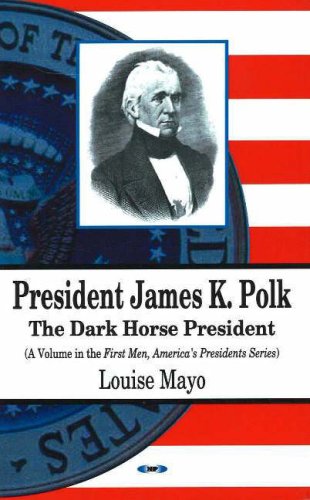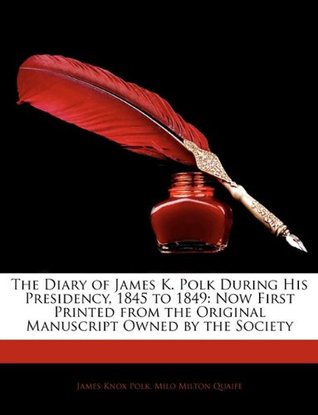The Best Books To Learn About President James K. Polk
(You can view the rest of our presidential Best Book lists by going to our Best US President Books page, or for a more in-depth look at how we found and ranked the books you can visit our Best Book About Every United States President article.)
James K. Polk Quick Facts |
| President Number | 11 |
| Terms In Office | 1 |
| Years | 1845-1849 |
| Political Party | Democratic |
| Vice President | George M. Dallas |
| Home State | Tennessee |
| Slaves Owned | 25 |
| Presidential Pet | Horse |
| Campaign Slogan | “Reannexation of Texas and Reoccupation of Oregon” |
| Articles Used in Ranking | 12 |
| Number of Unique Books | 17 |
Happy Scrolling!
The Best Book About James K. Polk
(Appears on 5 Lists)
A Country of Vast Designs: James K. Polk by Robert Merry
- At Times Dull
- Best Presidential Bios
- Mashable
- Presidents USA
- The Tailored Man
In a one-term presidency, James K. Polk completed the story of America’s Manifest Destiny—extending its territory across the continent by threatening England with war and manufacturing a controversial and unpopular two-year war with Mexico.
#2 Book
(Appears on 4 Lists)
Polk: The Man Who Transformed the Presidency and America by Walter Borneman
- All The Presidents Books
- Best Presidential Bios
- Presidents USA
- The Washington Post
In Polk, Walter R. Borneman gives us the first complete and authoritative biography of a president often overshadowed in image but seldom outdone in accomplishment. James K. Polk occupied the White House for only four years, from 1845 to 1849, but he plotted and attained a formidable agenda: He fought for and won tariff reductions, reestablished an independent Treasury, and, most notably, brought Texas into the Union, bluffed Great Britain out of the lion’s share of Oregon, and wrested California and much of the Southwest from Mexico. On reflection, these successes seem even more impressive, given the contentious political environment of the time.
#3
(Appears on 3 Lists)
James K. Polk and the Expansionist Impulse by Sam Haynes
- Best Presidential Bios
- Library of Congress
- Presidents USA
This biography explores the controversies, triumphs, and failures of the presidency of James K. Polk. Sam W. Haynes places Polk’s expansionist agenda in both political and social contexts and examines the nature and origins of the expansionist impulse.
#4-8
(Appear on 2 Lists)
James K. Polk by Eugene Irving McCormac
- Library of Congress
- Mandi Lindner
James K. Polk: A Clear and Unquestionable Destiny by Thomas M. Leonard
- Library of Congress
- Presidents USA
This book analyzes Polk’s political career and his role in each of these territorial expansions. James K. Polk: A Clear and Unquestionable Destiny shows that they were far more complex than the moral crusade that had been labeled ‘Manifest Destiny.’ Southern planters wanted to protect their ‘peculiar institution’ of slavery by adding new territories from which slave states would be carved. Commercial interests feared that war with England over any of these territories would adversely impact upon the nation’s trade. Although the Oregon boundary dispute was settled with little friction, the Mexican War erupted after the annexation of Texas.
Slavemaster President: The Double Career of James Polk by William Dusinberre
- Library of Congress
- Presidents USA
James Polk was President of the United States from 1845 to 1849, a time when slavery began to dominate American politics. Polk’s presidency coincided with the eruption of the territorial slavery issue, which within a few years would lead to the catastrophe of the Civil War. Polk himself owned substantial cotton plantations– in Tennessee and later in Mississippi– and some 50 slaves. Unlike many antebellum planters who portrayed their involvement with slavery as a historical burden bestowed onto them by their ancestors, Polk entered the slave business of his own volition, for reasons principally of financial self-interest. Drawing on previously unexplored records, Slavemaster President recreates the world of Polk’s plantation and the personal histories of his slaves, in what is arguably the most careful and vivid account to date of how slavery functioned on a single cotton plantation. Life at the Polk estate was brutal and often short. Fewer than one in two slave children lived to the age of fifteen, a child mortality rate even higher than that on the average plantation. A steady stream of slaves temporarily fled the plantation throughout Polk’s tenure as absentee slavemaster. Yet Polk was in some respects an enlightened owner, instituting an unusual incentive plan for his slaves and granting extensive privileges to his most favored slave. Startlingly, Dusinberre shows how Polk sought to hide from public knowledge the fact that, while he was president, he was secretly buying as many slaves as his plantation revenues permitted. Shortly before his sudden death from cholera, the president quietly drafted a new will, in which he expressed the hope that his slaves might be freed–but only after he and his wife were both dead. The very next day, he authorized the purchase, in strictest secrecy, of six more very young slaves. By contrast with Senator John C. Calhoun, President Polk has been seen as a moderate Southern Democratic leader. But Dusinberre suggests that the president’s political stance toward slavery– influenced as it was by his deep personal involvement in the plantation system– may actually have helped precipitate the Civil War that Polk sought to avoid.
The Presidency of James K Polk by Paul H. Bergeron
- Library of Congress
- Presidents USA
James K. Polk: Jacksonian and Continentalist by Charles Sellers
- Best Presidential Bios
- Library of Congress
#9-17
(Appear on 1 List)
“Young Hickory,” the Life and Times of President James K Polk by Martha McBride Morrel
- Library of Congress
Correspondence of James K. Polk: January-June 1845 by James K. Polk
- Presidents USA
In the second half of 1845 the focus of Polk’s correspondence shifted from those issues relating to the formation of his administration and distribution of part patronage to those that would give shape and consequence to his presidency: the admission of Texas, preparation for its defense, restoration of diplomatic relations with Mexico, and termination of joint occupancy of the Oregon Country. For the most part the incoming letters tended to urge rather more militancy on the Texas and Oregon questions than Polk would adopt, and notions of national destiny registered a singular theme of buoyant confidence in taking on both Mexico and Great Britain if military action should be required. President Polk and Secretary of State James Buchanan succeeded in both using and controlling the surge of nationalism that heightened expectations for expansion westward.
James K. Polk by John Seigenthaler
- Library of Congress
James K. Polk was a shrewd and decisive commander in chief, the youngest president elected to guide the still-young nation, who served as Speaker of the House and governor of Tennessee before taking office in 1845. Considered a natural successor to Andrew Jackson, “Young Hickory” miraculously revived his floundering political career by riding a wave of public sentiment in favor of annexing the Republic of Texas to the Union.
James K. Polk by Dee Lilligard
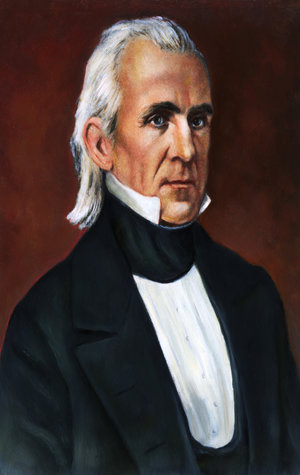
Lists It Appears On:
- Presidents USA
A biography of the eleventh American president, whose term in office saw great expansion of the western frontier.
Met His Every goal?: James K by Tom Chaffin
- Library of Congress
In this eye-opening study, Tom Chaffin, author, historian, and, since 2008, editor of the multi-volume seriesCorrespondence of James K. Polk, dispatches the thigh-slap anecdote and other misconceptions associated with Polk. In the process, Chaffin demonstrates how the “four measures” story has skewed our understanding of the 11th U.S. president. As president, Polk enlarged his nation’s area by a third—thus rendering it truly a coast-to-coast continental nation-state. Indeed, the anecdote does not record, and effectively obscures complex events, including notable failures—such as Polk’s botched effort to purchase Cuba, as well as his inability to shape the terms of California’s and the New Mexico territory’s admission into the Union. Cuba would never enter the federal Union; and those other tasks would be left for successor presidents. Indeed, debates over the future of slavery in the United States—debates accelerated by Polk’s territorial gains—eventually produced perhaps the central irony of his legacy: A president devoted to national unity further sectionalized the nation’s politics, widening geopolitical fractures among the states that soon led to civil war.
Polk and the Presidency by Charles Allan McCoy
- Library of Congress
This book will be a revelation to readers who might be confounded, even momentarily, by the question “Who was James K. Polk?” It is based on the assumption that the presidential power-role, though expressed in the Constitution and prescribed by law, is not a static role but a dynamic one, shaped and developed by a president’s personal reaction to the crises and circumstances of the times during which he serves. And Polk faced many crises, among them the Mexican War, the Oregon boundary dispute, the tariff question, Texas’s admission to the Union, and the establishment by the United States of a more stable and respected position in the world of nations.
President James K Polk: The Dark Horse President by Louise A. Mayo
- Library of Congress
The series ‘First Men, Americas Presidents’ series explains the personal and public life of each President of the United States. Their qualities of character and leadership are aptly interpreted and offer strong role models for all citizens. Presidential successes are recorded for posterity, as are the pitfalls that should be guarded against in the future. This series also explains the domestic reasons and world backdrop for the expansion of the Executive Office of the President. The President of the United States is perhaps the most coveted position in the world and this series reveals the lives of all those successfully elected, how each performed as president, and how each is to be measured in history. The collective life stories of the presidents reveal the greatness that America represents in the world.
Secret Agents: President Polk and the Search for Peace with Mexico by Anna Kasten Nelson
Lists It Appears On:
- SOLibrary of CongressRCE
The Diary of James K. Polk by James Knox Polk
- Presidents USA
The Best James K. Polk Book Lists Consulted
| Source | Article |
| All The Presidents Books | One Through Forty-Two or Forty-Three |
| At Times Dull | Janet’s Presidential Biography Project & Blog |
| Best Presidential Bios | The Best Presidential Biographies |
| Huffington Post | Presidents’ Day History: The Must-Reads Of Presidential Biographies |
| Library of Congress | Selected Bibliography |
| Mandi Lindner | 44 Presidents and Their Definitive Biographies |
| Mashable | Why I’m spending a year reading about every U.S. president |
| Presidential History | Presidential Resources |
| Presidential History (Again) | Pulitzer Prize Winning Books About Presidents |
| Presidents USA | FURTHER INFORMATION ABOUT JAMES K. POLK |
| The Tailored Man | The 44 Best Presidential Biographies |
| The Washington Post | The Fix’s list of best presidential biographies |
